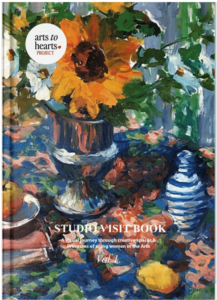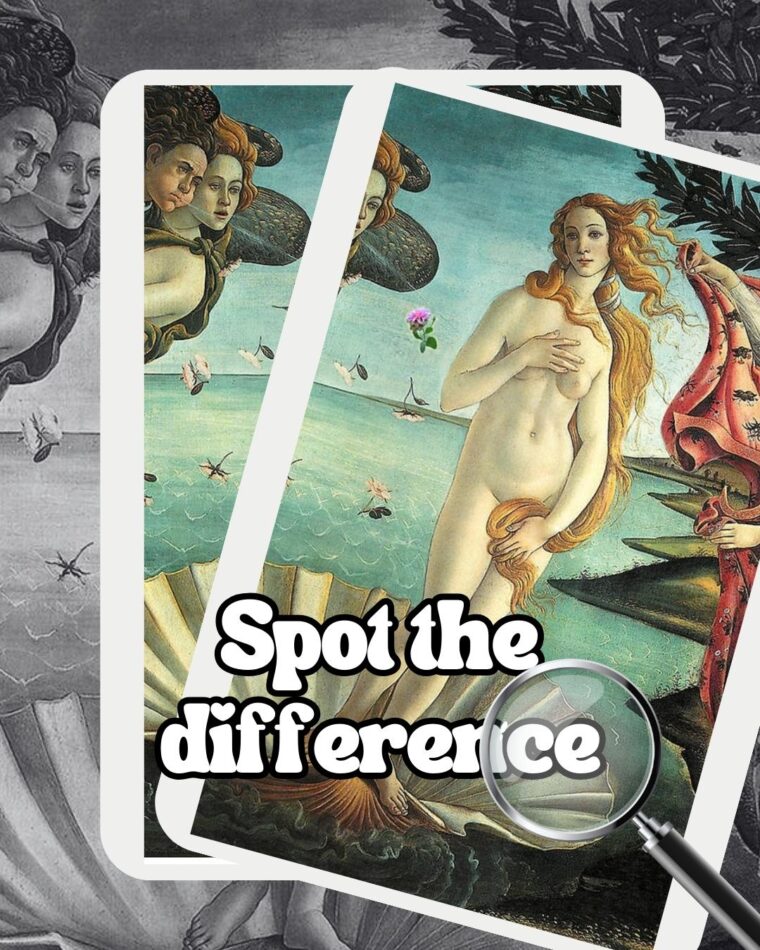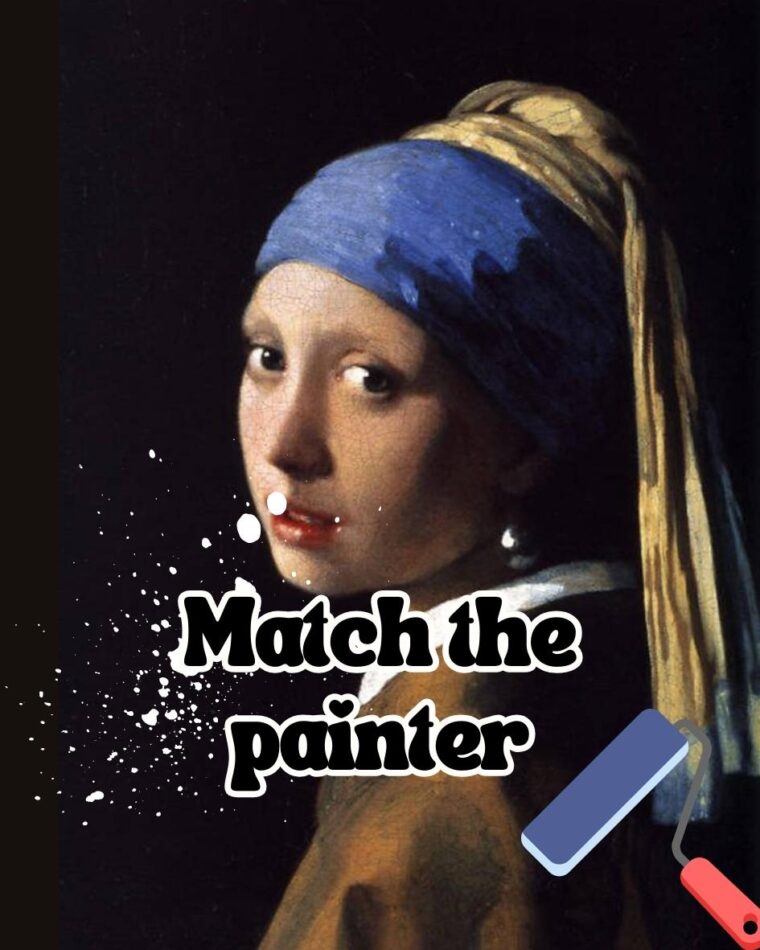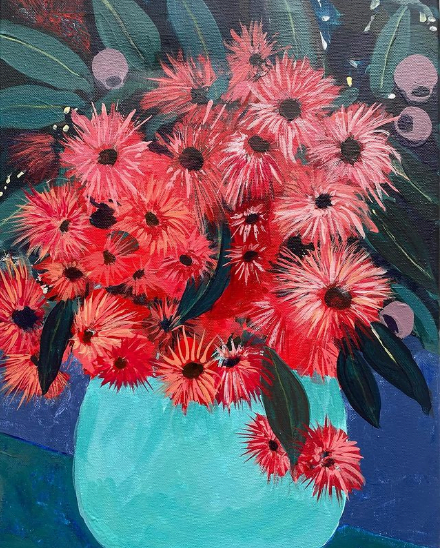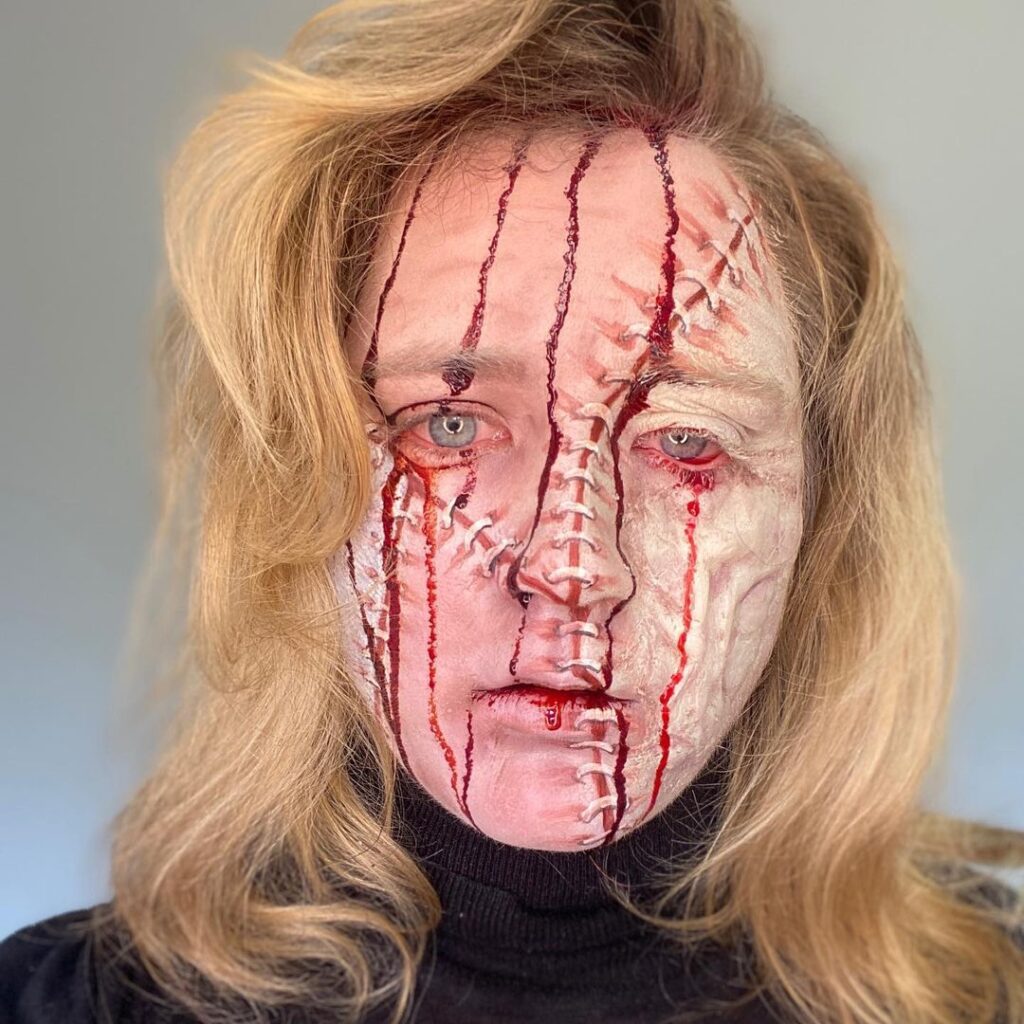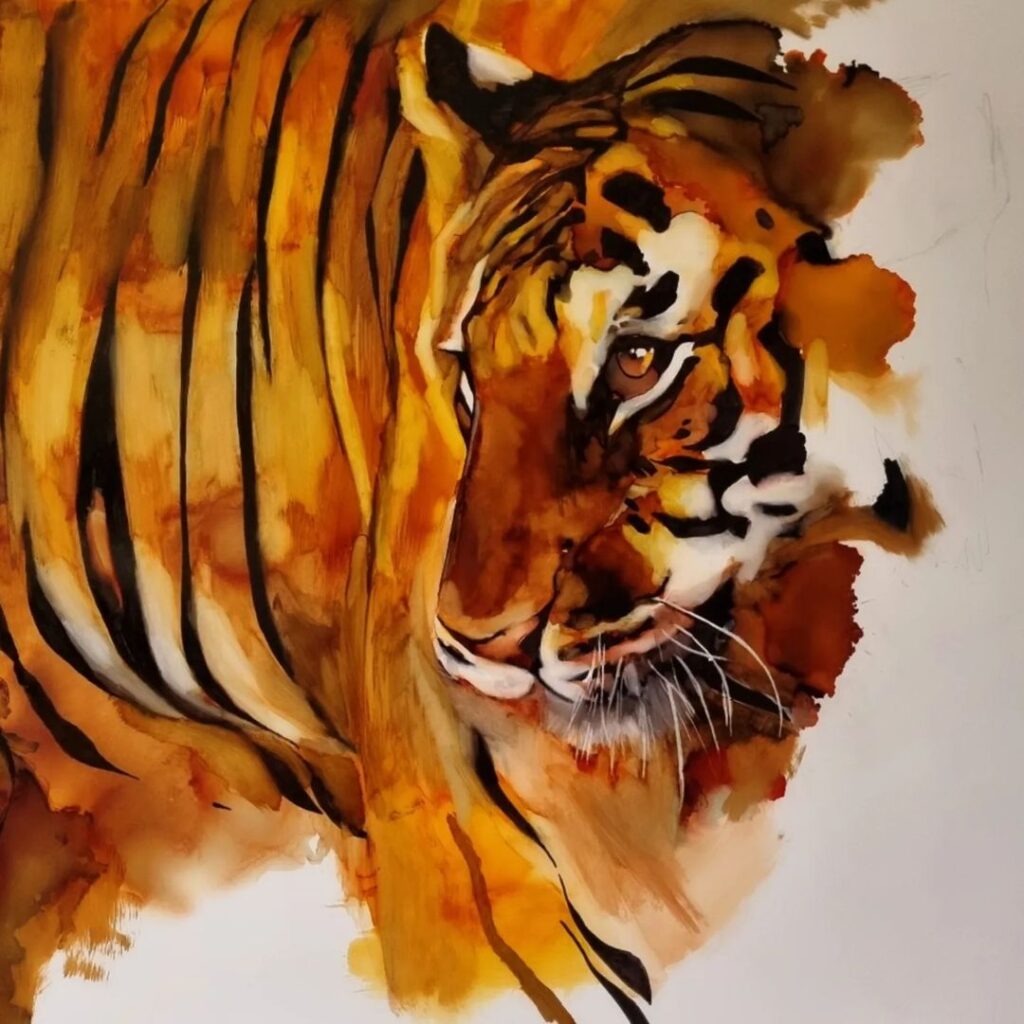
Shubhika Sharma: Reclaiming her power and space through Papa Don’t Preach


While running a business is not an easy task, for women it’s even more challenging as excelling in a male-dominated society can be quite taxing. From figuring out the technicalities and intricacies of a running a business to being taken seriously by their male counterparts, women have to overcome many obstacles before they successfully come out the other side. When we specifically talk about South Asian women, the nature of these obstacles becomes more cultural than global.
For this week’s ‘women in art’ series, let’s talk about Shubhika Sharma as a business woman who started very young and was able to find her way into the fashion industry.
When I look at Shubhika’s designs, what instantly grabs my attention are the bold colors and the eccentric 3D embroidery. With infinite sequins, pearls and rhinestones, each one of Shubhika’s designs is a piece of art. From lehngas to saaris to her fusion pieces, it’s heartening to see that a South Asian woman has found her own aesthetic and has stayed true to it. Shubhika Sharma founded Papa Don’t Preach (PDP) in 2011, and according to her, it was also one of the first independent labels to start an e-commerce website in India at the time. Shubhika is proud of her label for “intentionally, ethically, thoughtfully and beautifully” creating products.

How it began for Shubhika
For Shubhika Sharma, fashion is a canvas which she uses to express her creativity. While she always had the knack for designing clothes, she didn’t seriously think about it until she was offered the chance to buy a local boutique when she was 19. Grabbing the opportunity instantly, Shubhika was able to secure the deal with the help of her father and began this new chapter of her life.
The idea of running a business may have seemed like a piece of cake in the beginning, but soon it became clear to Shubhika that her success won’t happen overnight. She found haggling with customers difficult and tedious, and decided that she did not want to be the one to physically sell her pieces in the shop. She decided to go to London to do a short course on fashion designing, before coming back and picking up her boutique from where she left. She was empowered by her decision to come back to India as she believed that India needed her.
“I was able to empower the brand, and the brand empowered me!”
Shubhika Sharma
This was only the beginning for Shubhika, as PDP now has it all – wedding wear, trendy party clothes, jewelry, shoes and other accessories. Shubhika is “attracted to embroidery and color”, and she’s not afraid to make a statement by incorporating those elements into her creations in a world that has lately been obsessed with neutral tones. For her, the creativity comes at night when she’s in bed, and she does what every creative recommends – grabbing a pencil and sketching it on a paper so she doesn’t forget in the morning!
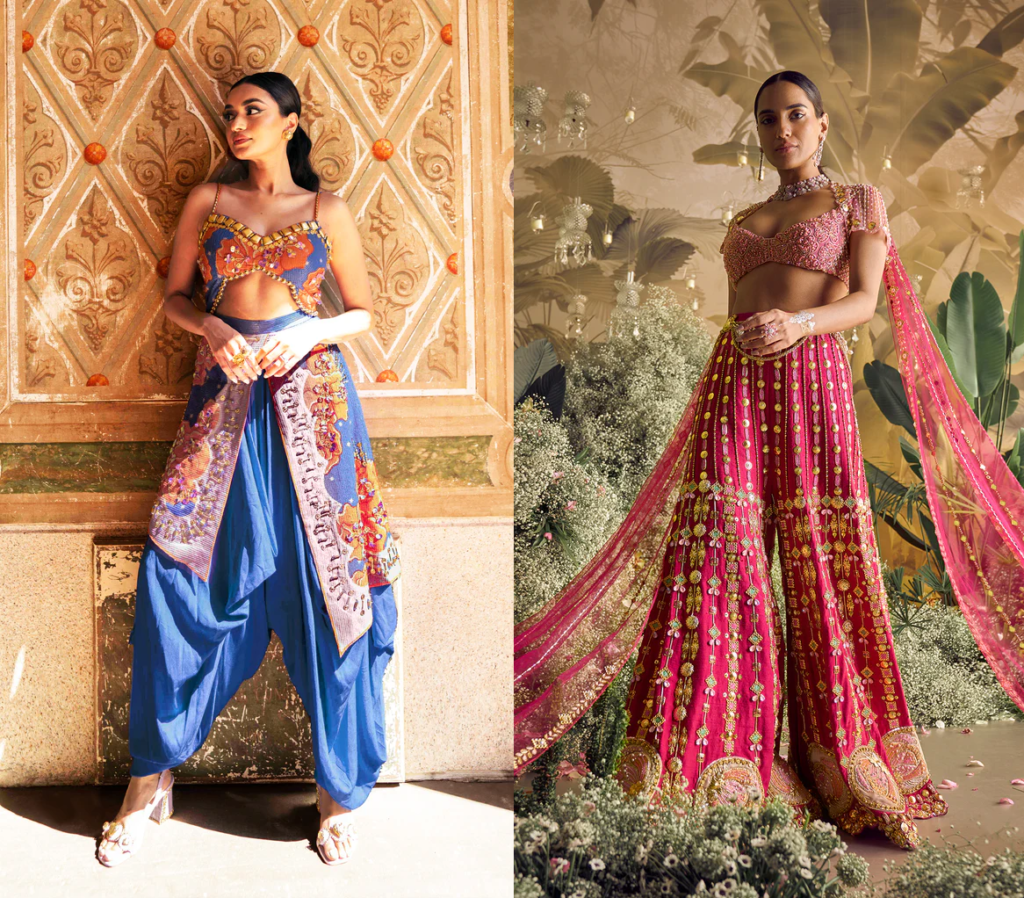
The origin of ‘Papa Don’t Preach’
When you hear of Shubhika Sharma’s brand, the first question that pops in your mind is, “why Papa Don’t Preach?” Shubhika calls music a sort of universal language which most creative people can relate to. The story behind her brand name is also quite similar as it was inspired from Madonna’s song, Papa Don’t Preach, which was on her playlist. Shubhika instantly connected with the name as it resonated with her relationship with her father who she calls the “central figure in her life” as he played “an instrumental role in shaping who she is today”. For Shubhika, her brand name is an ice breaker where people begin by asking her about the brand name, leading to interesting conversations.
From a designer to a businesswoman
Impressed by the fashion statements of women in the Oxford Street, Shubhika felt the need of a high street wear in India, and that is what she made for the next 2 years. However, soon she realized that if she wanted to run a business in India and make money from it, she had to respect the culture. That is when she switched directions, and while she still designs some high street wear, 90 percent of her pieces are eastern wear.
To launch her brand, Shubhika was the first one to do fashion flash mob in three night clubs in Mumbai. For the first 5 years, she struggled to create a business that would generate a sustainable income. She recalls falling behind on paying rent and her craftsmen’s (karegars) salaries. But for Shubhika, every day is a challenge in a business. Even after more than a decade of starting her brand, she still experiences off-seasons which she considers part of the journey. When it comes to building a network, Shubhika credits Instagram and a really strong client-service-driven format of the business which eventually led to the word of mouth.
“I started off because I was a designer, but I’m more of a business woman than a designer.”
Shubhika Sharma
Something else I admired about Shubhika is her honesty. Not many designers would admit that their pieces are expensive, but Shubhika acknowledges that PDP is a luxury brand, and well, luxury is expensive. Something she wants consumers to see is that, while most of them may have to save up to afford PDP, it’s not just a dress, it’s a status symbol they are willing to invest in. And I think it’s an important conversation to have- to not lose sight of what a luxury brand actually represents. By addressing the ‘price factor’, Shubhika is demonstrating that she may have come a long way, but she has not lost touch with reality and is willing to provide an experience to any customer who walks into her store.
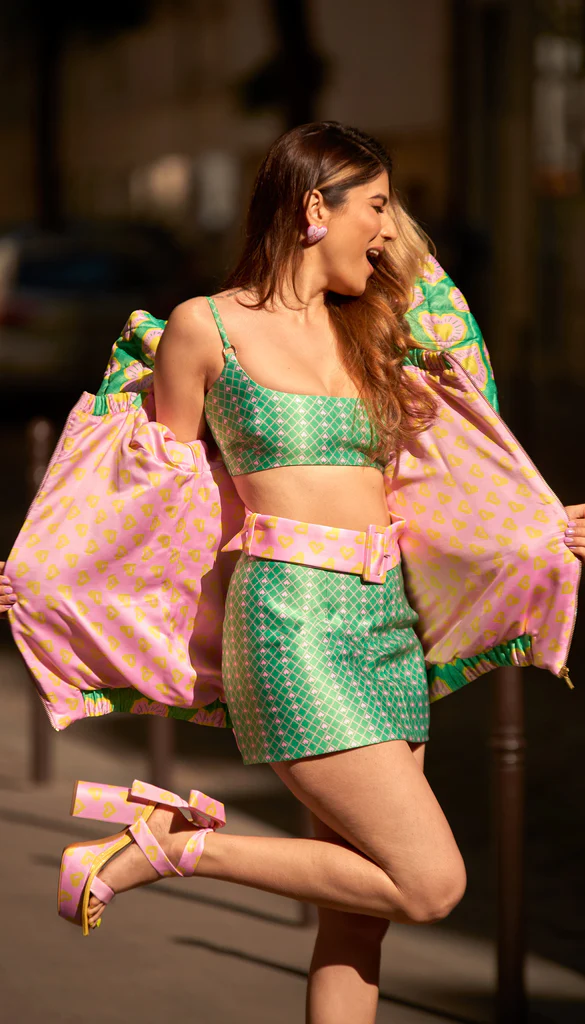
Challenges as a woman in business
Based out of Mumbai, Papa Don’t Preach has now over 300 craftsmen and has dressed celebrities like Chrissy Teigen, Katy Perry, Mindy Kaling and Alok Vaid-Menon. But for Shubhika, it took hard work and persistence to get to this point.
When it comes to running a business, Shubhika has faced her fair share of copycats. She talks about how fast fashion and people copying her designs have had a negative effect on her brand’s integrity. Her solution? To keep on building in spite of these complications!
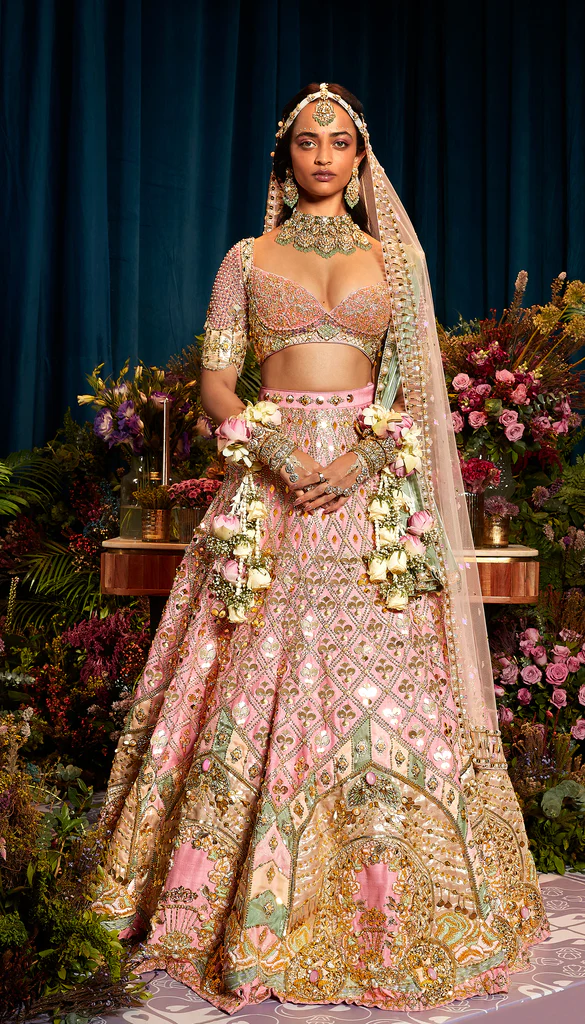
Speaking further about the challenges working women face, Shubhika talks about the female ideals and our role models. For millennials, the female role models were put into two boxes; good and bad. There was no in-between, which is why it can be hard for women to identify with someone because we are more than just ‘good girls’ or ‘bad girls’. Like many other women, Shubhika was also told to not be assertive, but over time she has realized that there is nothing wrong with it. While it may make men uncomfortable, women must not be afraid to take their space and get the work done! That’s why, it’s up to us now to provide realistic role models for the younger women.
For Shubhika, her biggest source of inspiration is her team. She feels empowered sitting with a group of women and working with them. This tells us a lot about the importance of interdependence where we need to lift each other up. Shubhika gives credits to her friends and family, and believes that we can’t achieve anything in a vacuum as everyone needs their support system. Shubhika’s edgy and rebellious nature may have made some people uncomfortable along the way, but it is also something that sets her apart. If you are an aspiring business woman who is often told off for being quirky and fun, this is your sign to keep being yourself!

